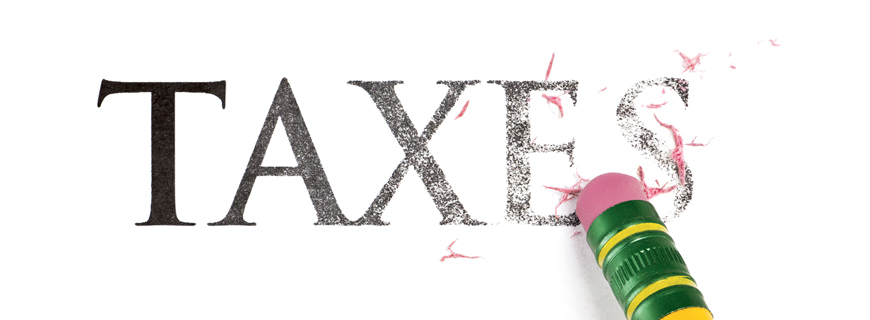Here’s a look at some of the most important estate planning tools and how you can use them to minimize taxes and maximize your estate’s value as the tax rules change over the decade. You’ll learn how these estate planning techniques can help you achieve specific financial goals. You will also see why it will be helpful to seek professional financial, tax and legal advice about ways to use these techniques effectively. Please let us know if you have any questions about how they might apply to your situation.
The Marital Deduction
The marital deduction is one of the most powerful estate planning tools available to you. Any assets passing to a surviving spouse pass tax-free at the time the first spouse dies, as long as the surviving spouse is a U.S. citizen. Therefore, if you and your spouse are willing to pass all your assets to the survivor, no federal estate tax will be due on the first spouse’s death – even before the estate tax is scheduled to be repealed completely in 2010.
This doesn’t solve your estate tax problem, however. First, if the surviving spouse does not remarry, that spouse will not be able to take advantage of the marital deduction when he or she dies. Thus, the assets transferred from the first spouse could be subject to tax in the survivor’s estate, depending on when the surviving spouse dies. Second, from a personal perspective, you may not want your spouse to pass all assets to a second spouse even if it would save estate taxes.
How to Preserve Both Exemptions
Since assets in an estate equal to the exemption amount are exempt from estate taxes, a married couple can use their exemptions to avoid tax on up to double the exemption amount. And this amount will gradually increase until it reaches $7 million in 2009 — the year before the estate tax repeal. An effective way to maximize the advantages of the exemption is to use a credit shelter trust, sometimes referred to as a bypass trust.
Let’s look at an example: Mr. and Mrs. Jones have a combined estate of $4 million. At Mr. Jones’ death in 2006, all of his assets pass to Mrs. Jones tax-free because of the marital deduction. Mr. Jones’ taxable estate is zero. Shortly thereafter, and still in 2006, Mrs. Jones dies, leaving a $4 million estate. The first $2 million is exempt from estate tax (in 2006), but the remaining $2 million is subject to taxation, leaving the Jones’ survivors with far less.
The problem? Mr. and Mrs. Jones took advantage of the exemption in only one estate.
Let’s look at an alternative: Mr. Jones’ will provides that assets equal to the exemption go into a separate trust on his death. This “credit shelter trust” provides income to Mrs. Jones during her lifetime. She also can receive principal payments if she needs them to maintain her lifestyle. Because of the trust language, Mr. Jones may allocate his $1.5 million exemption amount to the trust to protect it from estate taxes. If there were remaining assets (assets over $2 million), they would pass directly to Mrs. Jones.
Because the $2 million trust is not included in Mrs. Jones’ estate, her estate drops from $4 million to $2 million. Thus, no tax is due on her estate because it does not exceed the exemption amount. By using the credit shelter trust in Mr. Jones’ estate, the Joneses save hundreds of thousands of dollars in federal estate taxes.
The Joneses do give up something for this tax advantage. Mrs. Jones doesn’t have unlimited access to the funds in the credit shelter trust because if she did, the trust would be includable in her estate. Still, Mr. Jones can give her all of the trust income and any principal she needs to maintain her lifestyle. However, the outcome would be quite different if both spouses didn’t hold enough assets in their own names.
Control Assets with a QTIP Trust
A common estate planning concern is that assets left to a spouse will eventually be distributed in a manner against the original owner’s wishes. For instance, you may want stock in your business to pass only to the child active in the business, but your spouse may feel it should be distributed to all the children. Or you may want to ensure that after your spouse’s death the assets will go to your children from a prior marriage.
You can avoid such concerns by structuring your estate plan so your assets pass into a qualified terminable interest property (QTIP) trust. The QTIP trust allows you to provide your surviving spouse with income from the trust for the remainder of his or her lifetime. You also can provide your spouse with as little or as much access to the trust’s principal as you choose. On your spouse’s death, the remaining QTIP trust assets pass as the trust indicates.
Thus, you can provide support for your spouse during his or her lifetime but retain control of the estate after your spouse’s death. Because of the marital deduction, no estate taxes are paid on your death. But if your spouse dies while the estate tax is in effect, the entire value of the QTIP trust will be subject to estate tax
Of course, as with all estate planning strategies, these trusts are complex. Consider enlisting the advice of a qualified estate planning professional before proceeding further.



















